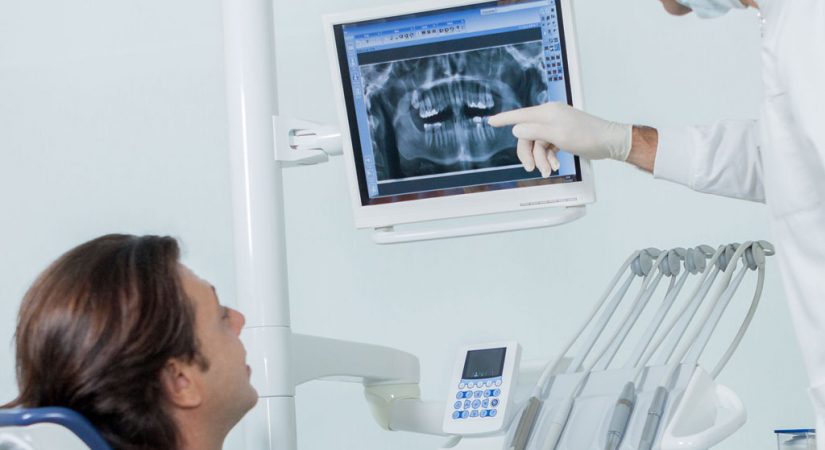Su salud oral es importante para nosotros, y eso incluye más que sólo sus dientes! Durante su limpieza dental, realizaremos un examen para determinar el nivel de su salud oral. También revisaremos su historial médico para determinar si usted está en riesgo de desarrollar cáncer oral.
Qué esperar durante una prueba de detección de cáncer oral
Los exámenes de detección de cáncer oral son hechos por nuestros médicos para buscar condiciones cancerosas y precancerosas. Idealmente, tratamos de detectar cualquier síntoma temprano, por lo que recomendamos que los pacientes se mantengan al día con sus exámenes dentales de cada seis meses. Por favor comunique cualquier preocupación que tenga de salud con su dentista y manténgase al día en su formulario de historia dental y médico.
- Aftas que duran más de 2 semanas
- Descoloración de la boca, lengua, amígdalas, mejillas o labios
- Dolor crónico oral o amígdalas asociado con bultos
- Dolor de garganta y ronquera con dificultad para tragar
- Dolor de oído en un sólo lado
- El consumo de tabaco representa el 85% del cáncer de cabeza y cuello
- Consumo pesado de alcohol, se define por el consumo de más de 21 bebidas por semana. El abuso de alcohol combinado con el tabaco pone a los pacientes en más riesgo de desarrollar cáncer oral.
- El virus del papiloma humano (VPH) tiene nueve cepas que se asocian con cáncer oral, particularmente la cepa HPV16 que es la fuente de la mayoría de los cánceres orales.
- La exposición a los rayos UV puede causar cáncer de labio y se presenta con una piel más clara y tiene más riesgo de desarrollar cáncer de labio. Utilice un bálsamo labial con protector solar y haga una aplicación de índice UV para pronosticar la radiación UV en esa área local.
- Sin embargo, la piel más oscura también puede tener cáncer de piel. Los latinos y ciertos grupos asiáticos pueden desarrollar carcinoma basocelulares, mientras que las personas de ascendencia africana o india corren el riesgo de desarrollar carcinoma de células escamosas. Para más información visite: http://www.skincancer.org/skin-cancer-information/ask-the-experts/can-darker-skinned-people-get-skin-cancer
- Sistema inmunológico debilitado
- Evitar la exposición excesiva al sol con el uso de protector solar (bálsamo para los labios con protector solar) y evitar tiempos en los que el índice UV es alto. Aquí hay un enlace, (link), a aplicaciones que le alertarán sobre la alta exposición a los rayos UV.
- Limite su consumo de alcohol y deje de fumar.
- Obtenga una vacuna contra el VPH y practique el sexo seguro
- Coma una dieta saludable
- Practique una buena higiene bucal
- No pierda sus exámenes dentales semestrales
- Si usted está en riesgo debido a su historial médico, usted querrá tener más de dos exámenes anualmente.
Formulario de Historia Medica y Dental del paciente
Si es un paciente nuevo o necesita actualizar su formulario de historia dental para ser más preciso, descargue este PDF y traigalo con usted en su próxima consulta dental o envíenos por correo electrónico la información del paciente.

